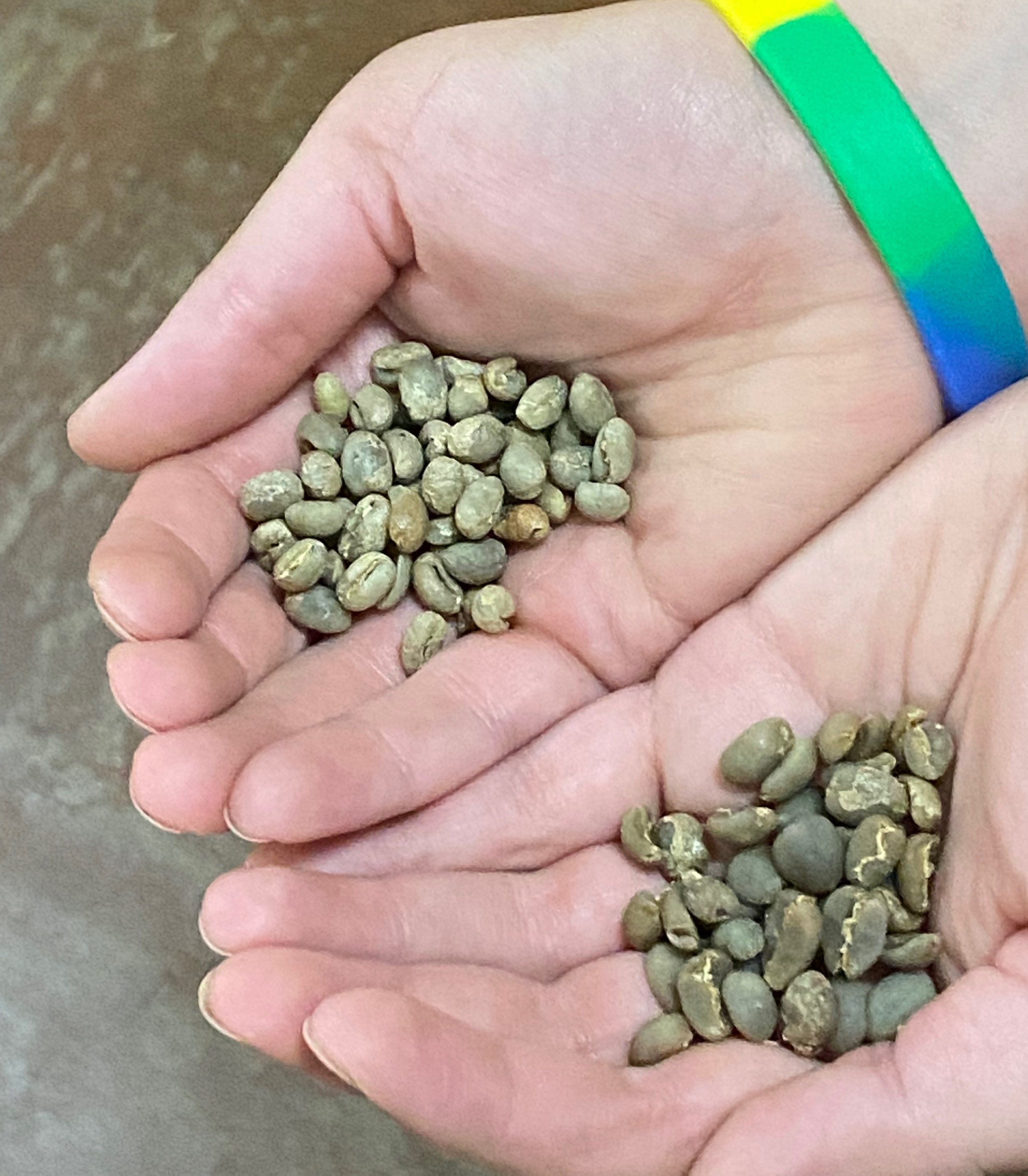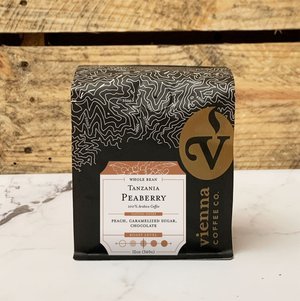The true origin story of coffee remains surrounded by legends.
However, the ancient coffee-growing regions of Ethiopia generally hold recognition as the originating discovery location. Coffee enthusiasts understand that coffee beans are actually seeds of the coffee cherry grown in tropical climates across the coffee belt growing area (for more details, check out The Coffee Bean: Seed to Cup).
Most coffee cherries contain two seeds with flat sides facing inward and rounded backs facing out. Once processed and roasted, these seeds produce the “coffee beans” consumers recognize as the source for their cup of caffeinated magic.
Peaberry Coffee
4-6% of coffee cherries harvested produce only one seed when both ovules of the coffee flower do not pollinate. This natural mutation results in a smaller and rounder seed, known as a peaberry.
Green peaberry coffee beans compared to traditional beans
The Peaberry name is a nod to the rounder pea-like shape of the bean in contrast to the traditional form with one side flat.
Once considered a defect, many coffee enthusiasts now believe that this anomaly in the coffee produces a superior quality bean. Hand-picked and then sorted and separated from the rest of the harvest, peaberries hold a reputation for brighter acidity, medium body, and notes of sweetness in the cup.
Vienna Coffee Company (VCC) is thrilled to offer our single-origin Tanzanian Peaberry Coffee from the Burka Estates (Tanzania’s oldest and largest specialty green coffee producer). Our roasters maximize the profile of these unique berries with a medium roast, resulting in tasting notes of peach, caramelized sugar, and chocolate.
History of Burka Estate Coffee
Established in 1899, the Burka Estate is a short distance from Mt. Kilimanjaro at the base of Mt. Meru in northern Tanzania. It encompasses the growing areas of Karatu, Arusha and Marangu. The estate farms produce shade-grown Arabica coffee using eco-friendly and environmentally responsible methods under mostly indigenous trees. The estate offer secure housing for its workforce and families while maintaining stringent standards to ensure environmental sustainability across their farms.
After World War I, the estate was declared “Enemy Property,” and became part of the new British Protectorate in Tanganyika. Eventually, the farm was bought by a group of Swiss investors. Its ownership continues today through independence from Great Britain and the merging of Tanganyika and Zanzibar into present day Tanzania.
Burka Estate encompasses a 160 acre protected forest nurtured by two large natural springs. Its artisanal approach to harvesting and processing the small harvest of peaberries endures. Cherries are washed and fermented overnight, and the washed beans are spread out on elevated tables to be sun dried. These dried peaberry beans are the product VCC sources to roast and offer our Tanzanian Peaberry Coffee to you through the Roastery or at the Coffee House.
At Vienna Coffee Company
we continuously strive to be a market leader by offering you excellent specialty coffees from across the globe. But we remain steadfast in our vision to pursue and provide craft coffees that are sourced sustainably and provide a living wage for coffee workers regardless of gender.
In addition to our limited offering of Tanzanian Peaberry, we also offer a variety of Fair Trade Certified, Organic, and single-origin coffees. Try one or several to ensure you capture your favorite flavor notes in your coffee and help us ensure responsible sourcing from seed to cup.










